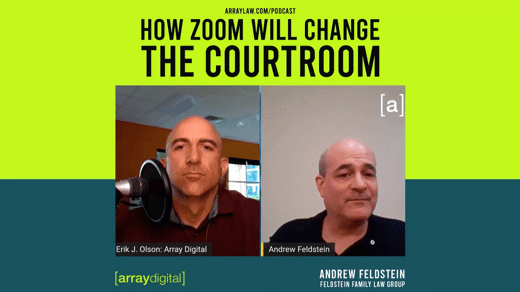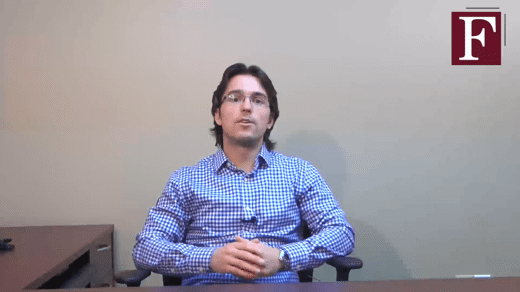Hello, I am Jeffrey Hart with the Feldstein Family Law Group.
In earlier videos, my colleagues took a closer examination of starting and responding to a Court Application, Case Conference, Motions, Settlement Conference and Trial Management Conference. I encourage you to view those videos. Today, I would like to continue where we left off, which was with Trials. I could not possibly cover all of the ins and outs of a trial in a short video blog. There are entire books and papers on how to properly conduct a trial, so my short video will only serve as a basic primer. My goal today will be to help you think a little about what a trial is meant to be, why we have them, what to expect at a trial and what to think about before your trial. Nothing fancy, just the basics.
Trials
What is a Trial?
Well, most of us have seen trials on television and in movies, and they appear to be very dramatic and entertaining. In truth, they are neither dramatic nor entertaining. Believe me. Well, some of them can be, but for all the wrong reasons. To answer the question, a trial is a hearing wherein a judge will make a final determination on whatever issues remain unresolved between the parties. The judge will make her or his decision after hearing all of the evidence at the trial, which in most cases is given orally (by witnesses in the witness box, under oath) so that the trial judge can hear the witness speak to assist with determining their credibility. This is ‘show time’ and you better be able to prove your case with evidence, and you had better get it all out at the trial.
Why do we have Trials?
In family law we have trials when the parties cannot agree on how to resolve their issues, and as such the Court is tasked with providing the parties with a resolution. If you ask any judge, she or he will tell you that they would rather the spouses make the decisions and leave the Court out of it. When this does not happen, the Court has to take over, albeit in a limited basis. Please keep in mind that family law is a contradiction in terms, as family is very private, and law is very public, as such the Court will decide the public parts of the end of your relationship or marriage, and not the private parts.
So, to be clear, trials are not for airing your dirty laundry, or proving your spouse is a jerk, or worse. Trials are not for proving your spouse lied during your marriage, or for making your spouse spend lots of money. If you come to a trial for any of those reasons, then you will most likely leave very disappointed. These are all very private issues that you may want to speak to a counsellor about, as opposed to seeking a judge’s verdict. As such, trials are about good wholesome fun things like deciding where your children will live, and how much time you will get to spend with them, and whether you will support them or your spouse financially, and whether you own more than your spouse and as such whether you need to make a payment to your spouse to balance out your net worth from the marriage. Yes, fun stuff. You begin to understand that trials are not exciting. They are tedious, stressful things that should be avoided. They are also incredibly expensive. They are last resorts.
What happens at a Trial?
Well, a basic trial will have either written or oral opening statements, which tell the trial judge the issues you are asking the Court to decide, the orders you want the Court to make, provide the trial judge with the law you are relying on, and give a brief synopsis of the evidence you will enter during the trial. An opening statement is a road map for the trial judge, who will not have had any exposure to the facts of the case prior to the commencement of trial, so as to avoid forming any opinions or biases regarding the case. Then the evidence is called by either having witnesses testify and verify documents, or filing affidavits or reports. Each witness could then be cross-examined by the other party to try to hurt their credibility. The skill of examination and cross-examination are not easy to learn, and can be an art if executed properly. It takes experience, confidence and a very strong understanding of the evidence to do it well, so the best advice I can give is to know your facts and your case, and keep your focus. After all of the evidence is called by both parties, then the parties will make either a written or oral closing argument, which will explain why the Orders being sought should be made by the Court based on what evidence was presented.
Trials are not easy.
Many lawyers with years and years of experience are not comfortable doing trials. You should strongly consider retaining a lawyer to assist you with a trial, as you should not expect any special treatment from the trial judge if you are unrepresented. You will be expected to abide by the rules of evidence, for example. I have done many trials with unrepresented litigants and have seen them lose due to common mistakes. The problem with losing a trial is that you have to pay the legal fees of the winner, which depending on how long the trial takes could result in you paying tens of thousands of dollars to your spouse just for their legal fees.
You should consider carefully whether you need to proceed to trial. If so, proceed carefully with your trial, and you should consult with an experienced family law lawyer before proceeding.
I’m Jeffrey Hart. Thank you for watching today. If you need more information and wish to schedule a consultation, please visit our website or contact our office at 905-581-7222.



